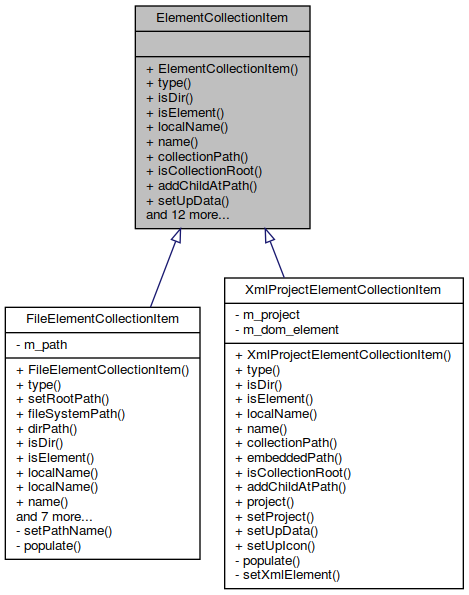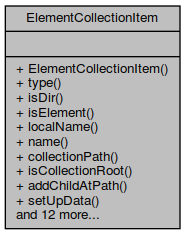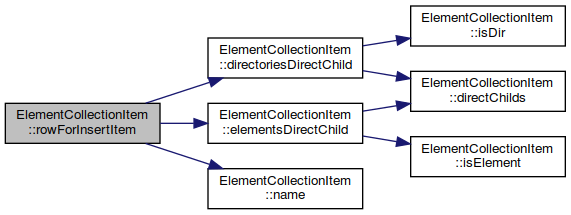 |
QElectroTech
0.8-dev
|
 |
QElectroTech
0.8-dev
|
The ElementCollectionItem class This class represent a item (a directory or an element) in a element collection. This class must be herited for specialisation. This item is used by ElementsCollectionModel for manage the elements collection. More...
#include <elementcollectionitem.h>


Public Types | |
| enum | { Type = UserType+1 } |
The ElementCollectionItem class This class represent a item (a directory or an element) in a element collection. This class must be herited for specialisation. This item is used by ElementsCollectionModel for manage the elements collection.
| ElementCollectionItem::ElementCollectionItem | ( | ) |
ElementCollectionItem::ElementCollectionItem Constructor.
|
pure virtual |
Implemented in FileElementCollectionItem, and XmlProjectElementCollectionItem.

| ElementCollectionItem * ElementCollectionItem::childWithCollectionName | ( | const QString & | name | ) | const |
ElementCollectionItem::childWithCollectionName Return the child with the collection name name, else return nullptr.
| name |


|
virtual |
|
pure virtual |
Implemented in FileElementCollectionItem, and XmlProjectElementCollectionItem.

| QList< QStandardItem * > ElementCollectionItem::directChilds | ( | ) | const |
ElementCollectionItem::directChilds Return the direct child of this item.

| QList< ElementCollectionItem * > ElementCollectionItem::directoriesChild | ( | ) | const |
ElementCollectionItem::directoriesChild.


| QList< ElementCollectionItem * > ElementCollectionItem::directoriesDirectChild | ( | ) | const |
ElementCollectionItem::directoriesDirectChild.


| QList< ElementCollectionItem * > ElementCollectionItem::elementsChild | ( | ) | const |
ElementCollectionItem::elementsChild.


| QList< ElementCollectionItem * > ElementCollectionItem::elementsDirectChild | ( | ) | const |
ElementCollectionItem::elementsDirectChild.


|
pure virtual |
Implemented in FileElementCollectionItem, and XmlProjectElementCollectionItem.

|
pure virtual |
Implemented in FileElementCollectionItem, and XmlProjectElementCollectionItem.

|
pure virtual |
Implemented in FileElementCollectionItem, and XmlProjectElementCollectionItem.

| ElementCollectionItem * ElementCollectionItem::itemAtPath | ( | const QString & | path | ) |
ElementCollectionItem::itemAtPath.
| path |


| QList< ElementCollectionItem * > ElementCollectionItem::items | ( | ) | const |


| ElementCollectionItem * ElementCollectionItem::lastItemForPath | ( | const QString & | path, |
| QString & | no_found_path | ||
| ) |
ElementCollectionItem::lastItemForPath Return the last existing item in this ElementCollectionItem hierarchy according to the given path. Next_item is the first non existing item in this hierarchy according to the given path.
| path | : The path to find last item. The path must be in form : path/otherPath/.../.../myElement.elmt. |
| no_found_path | : The first item that not exist in this hierarchy |


|
pure virtual |
Implemented in FileElementCollectionItem, and XmlProjectElementCollectionItem.

|
pure virtual |
Implemented in FileElementCollectionItem, and XmlProjectElementCollectionItem.

| int ElementCollectionItem::rowForInsertItem | ( | const QString & | name | ) |
ElementCollectionItem::rowForInsertItem Return the row for insert a new child item to this item with name.
| name |


|
pure virtual |
Implemented in FileElementCollectionItem, and XmlProjectElementCollectionItem.

|
pure virtual |
Implemented in FileElementCollectionItem, and XmlProjectElementCollectionItem.
|
inlineoverride |

 1.8.18
1.8.18